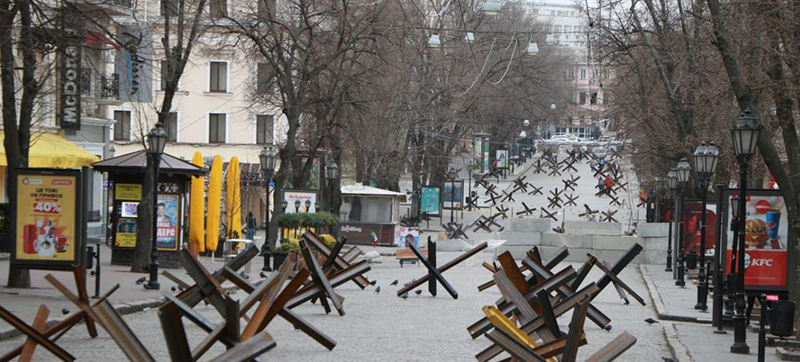Ukraine needs ‘implementable’ peace, Security Council hears, meeting on anniversary of Minsk accord

New York: While a peaceful resolution is desperately needed to the war in Ukraine, any agreement reached must be tangible, implementable and address the conflict’s root causes, officials told the Security Council on Friday, citing lessons learned from the fate of the so-called Minsk accords.
“Peace is not just about signing an agreement,” said Miroslav Jenča, UN Assistant Secretary-General for Europe, Central Asia and Americas, who briefed members during a meeting requested by the Russian Federation - as the one-year mark nears, since the Kremlin launched its full-scale invasion of Ukraine.
Mr. Jenča stressed that turning words on paper into action on the ground is particularly important given the current complexity of the situation in Ukraine, as well as its implications for the future of Europe’s security architecture “and the international order itself.”
Ceasefire on paper
The Minsk accords – also known as the Minsk II agreement – were signed in February 2015 by representatives of the Organization for Security and Cooperation in Europe (OSCE), Russia, Ukraine and the self-proclaimed Donetsk People’s Republic and Luhansk People’s Republic.
The agreement laid out a series of political and military steps to end the fighting between Government forces and separatists in eastern Ukraine.
Among other provisions, the Minsk accords committed signatories to an immediate and comprehensive ceasefire in certain areas of Donetsk and Luhansk regions – an element that is widely viewed as never having taken effect.
The Security Council has traditionally met annually on the anniversary of the signing of the Minsk agreements.
No formal UN role
Mr. Jenča reminded the Security Council on Friday that the UN has played no formal role in any mechanism related to the peace process in Ukraine, over the last eight years.
It was not invited to be a participant in the various negotiations in Minsk, or to the 2014 and 2015 agreements themselves, and it was not involved in the implementation efforts led by the OSCE’s Trilateral Contact Group – made up of representatives of three parties.
However, the UN has consistently supported its implementation, including through the Security Council’s unanimously adoption of resolution 2202 (2015) on 17 February 2015.
The Organization has also offered support, where requested and appropriate, and provided expert support to the OSCE’s now-defunct Special Monitoring Mission in eastern Ukraine.
At the same time, said Mr. Jenča, the UN stands firm in its principled support for Ukraine’s independence, sovereignty and territorial integrity within its internationally recognized borders.
‘Profound shock and disappointment’
Also briefing the Council was Martin Sajdik, who served as Special Representative of the OSCE for the Minsk negotiations from 2015 to 2019.
Apart from Minsk II, he provided an overview of other diplomatic strides and setbacks during his tenure, agreeing that many provisions lacked the political will needed to become reality on the ground.
Spotlighting the OSCE’s focus on the safety and needs of civilians on both sides of the contact line, he said the number of civilian victims had dropped significantly in the years before the present outbreak of fighting.
Among other successes, water management and conditions at border crossing points had improved by 2019, a year that saw – for the first time since the onset of fighting in 2014 – not a single child killed as a result of the hostilities.
Against the backdrop of those hard-won gains, Mr. Sajdik expressed his “profound shock and disappointment” over the spiralling violence that has rocked Ukraine since 2022.



